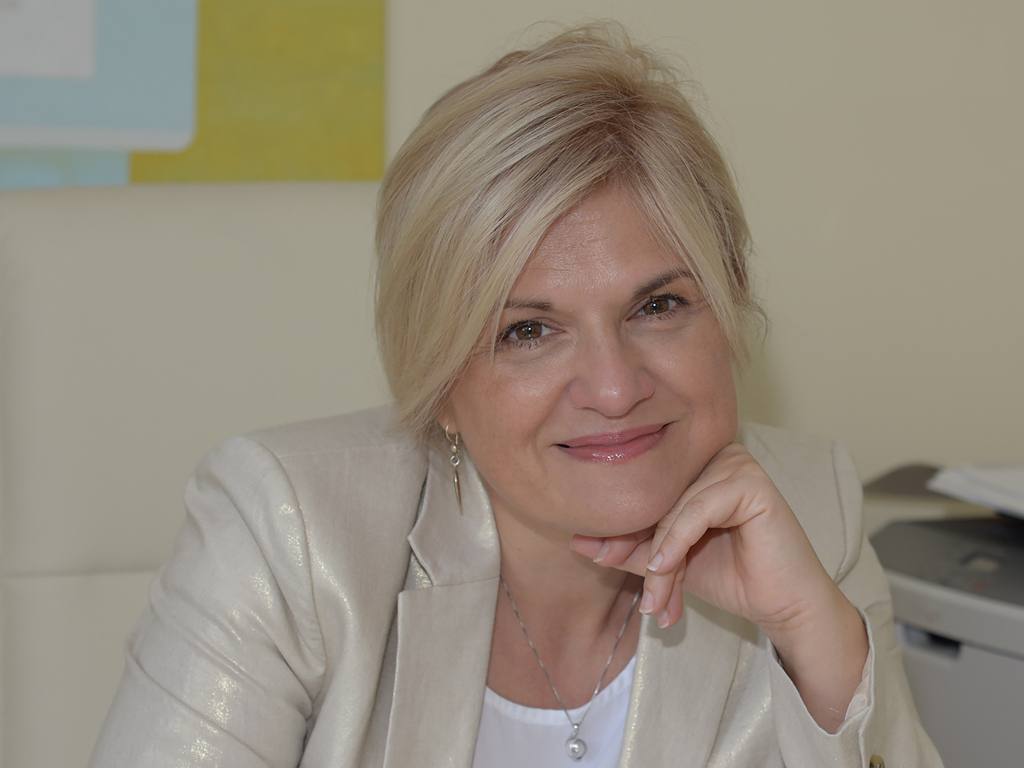Natasa Milicevic Dobromirov, owner of Novi Sad's Azbukum Center – Serbian language our only original product
 Tuesday, 01.11.2016.
Tuesday, 01.11.2016.
 14:33
14:33

– The center has existed for 21 years now, and I decided to start this enterprise because I believe that it is important that there be a place for people who wish to study the Serbian language and culture, without it being in a professional capacity, such as in universities. I observed how foreigners react to our language and environment in different situations and saw that there was a need for this type of education. Anyone can apply for our course – says Natasa Milicevic Dobromirov in her interview for eKapija.
When she decided to found Azbukum, her friends and acquaintances asked her where she had gotten the idea and commented that no one needed to know Serbian. Our interviewee, however, already had international experience at the time, having spent some tome in the USA and England as a student, thereby being familiar with all the challenges of living abroad. She had previously graduated from the Faculty of Philosophy in Novi Sad, where she also earned a Master's Degree in comparative literature.
– I returned to Serbia in 1994 and immediately started developing my business idea. Even though it was the worst period of sanctions and hyperinflation for most citizens of Serbia, and even though everybody kept asking me why I had come back, it was the only way for me and I'm very glad I've gone down this road. I received great support from my family, and the one who was the most understanding was my mother, who decided to leave her job as a TV producer and join me in my venture. To this day, she is my main associate in the sector of administration, finance and legal matters – says the owner of Azbukum.
Large investments and enthusiasm

– When we were starting, large financial investments were needed, but we also needed a lot of enthusiasm. Until 1998, our courses were being organized in the Sremski Karlovci Gymnasium, where we had an agreement with the school's principal, and we also had great communication with the mayor. In the summer of 1998, he provided us with a special tourist bus able to accommodate all 150 students from 72 countries who took part in the course that summer. They would set off from Novi Sad to Sremski Karlovci in the morning and return later in the day, which lasted for four full weeks. At the time, it was truly extraordinary and everyone radiated positive energy – eKapija's interviewee explains.
What followed was the bombing of 1999 and a halt of several months.
– Following the end of the bombing, I reported through the website that we were all in one piece and that we are continuing with our activities. Already in August there were 30 students, of which 15 old ones. Many of them brought us humanitarian help as well. By the way, Azbukum is the first institution in Serbia to have its website, thanks to Professor Danko Sipka, who had set it up – Natasa Milicevic Dobromirov points out.
For several years, she was the only employee at the center, along with numerous external associates. Today, this small educational institution has 11 permanent employees and 52 occasional associates. Aside from professors, many of them act as tourist guides, historians, curators and culinary instructors teaching foreigners about the culture of Serbia. Azbukum also organizes accommodation for its students in families willing to take in foreigners as per need.

– So far, more than 3,000 students have completed the Azbukum courses and I am very optimistic about the whole project – our interviewee says.
Future in multimedia-aided studying
Azbukum's main offices are located in Novi Sad, and there's a working unit in Belgrade as well. The courses are held in other places throughout Serbia on a per need basis, and the center cooperates successfully with foreign colleagues.
– We have truly invested a lot in our development, and we have also tried to certify our courses and textbooks, but, unfortunately, our educational system doesn't recognize Serbian as a foreign language, calling it Serbian as a non-mother language for the needs of national minorities. We have addressed the Ministry of Education and they have told us that their approach was something else altogether. In the meantime, we applied at the Assembly of Serbia to have the situation considered.
Our interviewee says that, along with courses and textbooks, connecting people who want to deal with the Serbian language is the third significant aspect of Azbukum's activities and a part of the center's basic mission.

Talking about her career, Natasa Milicevic Dobromirov says that women entrepreneurs face numerous challenges, one of which is forming a good team. As for the business climate, the biggest difficulties are related to complicated administration and excessive paperwork.
– Also, in Azbukum, we always feel the consequences of new crises in the world and changes of the global political situation, because this is immediately reflected on the interest and the influx of people from a certain area. When it comes to foreign language schools organizing Serbian courses for foreigners, they are a kind of competition for Azbukum, but, at the same time, the center communicates and cooperates successfully with many of them. Those schools buy our textbooks, ask us for advice... – eKapija's interviewee says.
Natasa Milicevic Dobromirov says that she would like for a type of online approach to studying Serbian to become established in the period to come.
– We are already organizing courses through Skype, but we need a much larger platform for multimedia-aided studying. We have some ideas and we are considering potential partners and investments to that end, as I see this as the future of our profession. The Serbian language is our only original product making the entire community recognizable, which is why this field of activities needs to be cultivated – concludes the owner of Azbukum Center.
Marko Andrejic
Most Important News
06.04.2024. | Agriculture
Preconditions for Placement of Fresh Blueberries and Dried Plums in Chinese Market Secured

16.04.2024. | News
Jovan Ciric, Leasing Director Retail MPC Properties – MPC Echo symbolizes our desire for good ideas and innovative endeavors to spread freely and bring about positive changes

16.04.2024. | News
10.04.2024. | Finance, IT, Telecommunications, Tourism, Sports, Culture
Creative Industry – What This Serbian Economy Sector Worth EUR 2 Billion Encompasses

10.04.2024. | Finance, IT, Telecommunications, Tourism, Sports, Culture
18.04.2024. | Industry, Finance
Here come the new hunters for Serbian gold – Australian Strickland Metals buys mining project on mountain Rogozna

18.04.2024. | Industry, Finance
16.04.2024. | News
Economy Fair in Mostar opens – 26 companies from Serbia exhibiting

16.04.2024. | News
18.04.2024. | Transport
Jovanovic: Purchase of Siemens trams produced in Kragujevac for GSP Beograd should be considered

18.04.2024. | Transport


 Izdanje Srbija
Izdanje Srbija Serbische Ausgabe
Serbische Ausgabe Izdanje BiH
Izdanje BiH Izdanje Crna Gora
Izdanje Crna Gora


 News
News








